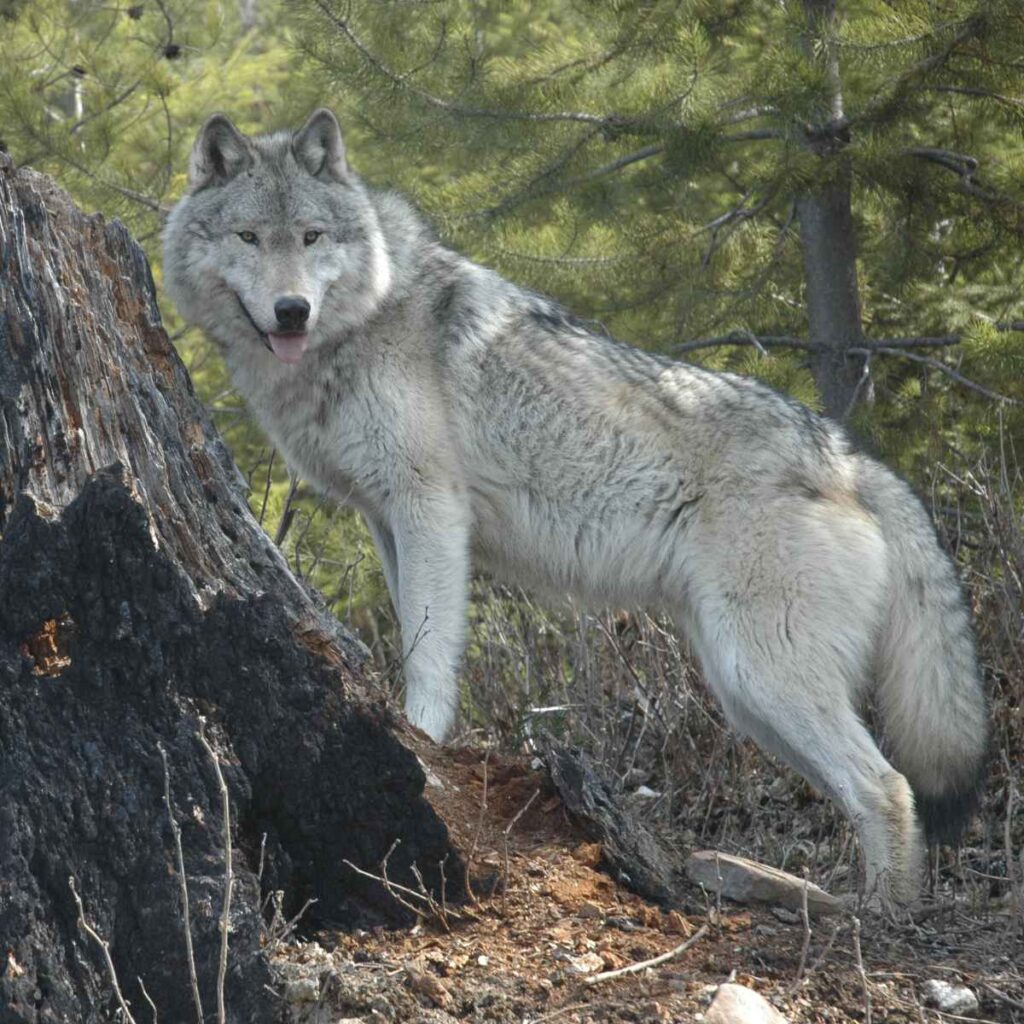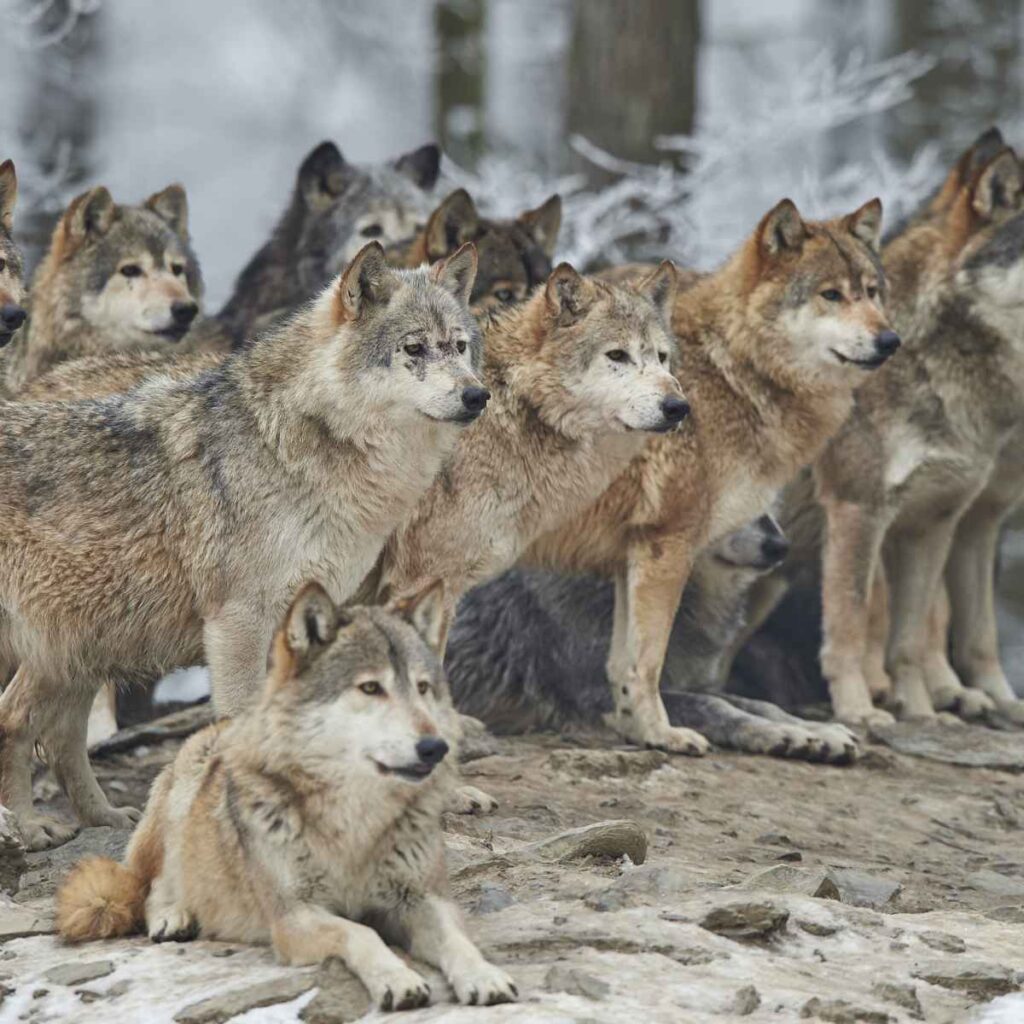Last Reviewed and Updated on August 14, 2022
Wolves are well known for their cooperative hunting strategies and family-oriented social behavior. But did you know that they have quite a few other interesting traits? Here are some of the more surprising facts about wolves that you might not have heard about before.

1. Wolves are native to Eurasia and North America
They can be found across large regions in North America, Europe, and Asia. They were even more widespread in the past, but humans pushed them out as well as destroyed some of their habitats.
2. Wolf is the largest wild canine
As far as wild canines go, wolves are the largest, with the Gray wolves being the largest of the wolf species, followed by the red wolf.
If you take domesticated canines into account, many are larger than the red wold, but not many can top the Gray wolf. A great dane male is usually larger than a Gray wolf is.
3. They are specialized in cooperative hunting
Wolves work together when hunting; they even have assigned roles in the hunt, depending on the age of the animal, gender, and even their social status within the pack.
They can hunt solo as well. Wolves will hunt solo when there is an abundance of food. They will only tackle smaller prey when hunting solo.
4. Wolves are social animals
These animals are very social. They develop close ties with individuals, and they function well within packs. Packs are usually composed of anywhere from 2 to 15 animals. Within these packs, wolves educate their young and pass on knowledge across generations.

5. They are territorial
They may get along with their pack members really well, but they aren’t too fond of other wolves trespassing on their territory. Most of the time, a simple growling warning is enough to intimidate the outsider, but sometimes a chase or even a physical confrontation is required.
6. They do not howl at the moon
Wolves are often depicted as howling at the full moon, but this is nothing more than a myth. The moon has no effect on their behavior; they do not howl more or less when the moon is full.
7. Wolves are monogamous
They are primarily monogamous, meaning they only have one mate for life. This is not a firm rule, as is usually the case in nature, some wolves show polygamous tendencies, and some even “cheat.”
Gray wolves are typically monogamous and have one partner in life unless the partner dies. Certainly one of the more interesting facts about wolves.
8. Before birth, pregnant females seek dens, and their pups are raised in dens
Think of a den as a nursery! Wolves don’t live in dens but a pregnant female will find a den shortly before giving birth. Wolves can make new dens, use dens of other animals and reuse their dens for generations.
Once the pups are born, they will spend about a month in the den, and after that will be encouraged to start leaving the den for short periods of time.
9. They are predominantly nocturnal predators
Wolves are most active during the night and will spend the day resting.
10. When it comes to feeding, there are rules as to who eats first
There are many social rules a wolf has to follow in their pack, and each wolf knows their place. When they hunt and kill their prey, the feeding is not a “free for all.”
Generally, the alpha male and female eat first. Larger packs have betas and wolfs that are “second in command” these are next to eat, followed by others.
But this is not always the case; under the supervision of alphas, the order of eating can change.
When the food is scarce, the alphas allow the young to eat first.
11. Wolf attacks on humans are rare
They may be one of the more feared animals, mostly thanks to fairytales and folklore; however, actual wolf attacks on humans are rare. The majority of these very rare attacks are due to rabies. It’s still best to avoid encounters.
12. They can be bred with some other canines
Wolf-dog hybrids are possible.
13. A group of wolves is called a pack
And you have more chances of seeing a pack of these animals than a “lone wolf.” A solitary wolf is usually one who leaves its home territory in search of new territory and a mate to start a pack of its own.
14. Wolves take care of their injured
This is one of the coolest facts about wolves. They have close bonds to their pack members, so if a member of a pack gets injured, other wolves will take care of it, defending it from other predators and bringing the injured or sick wolves food.
